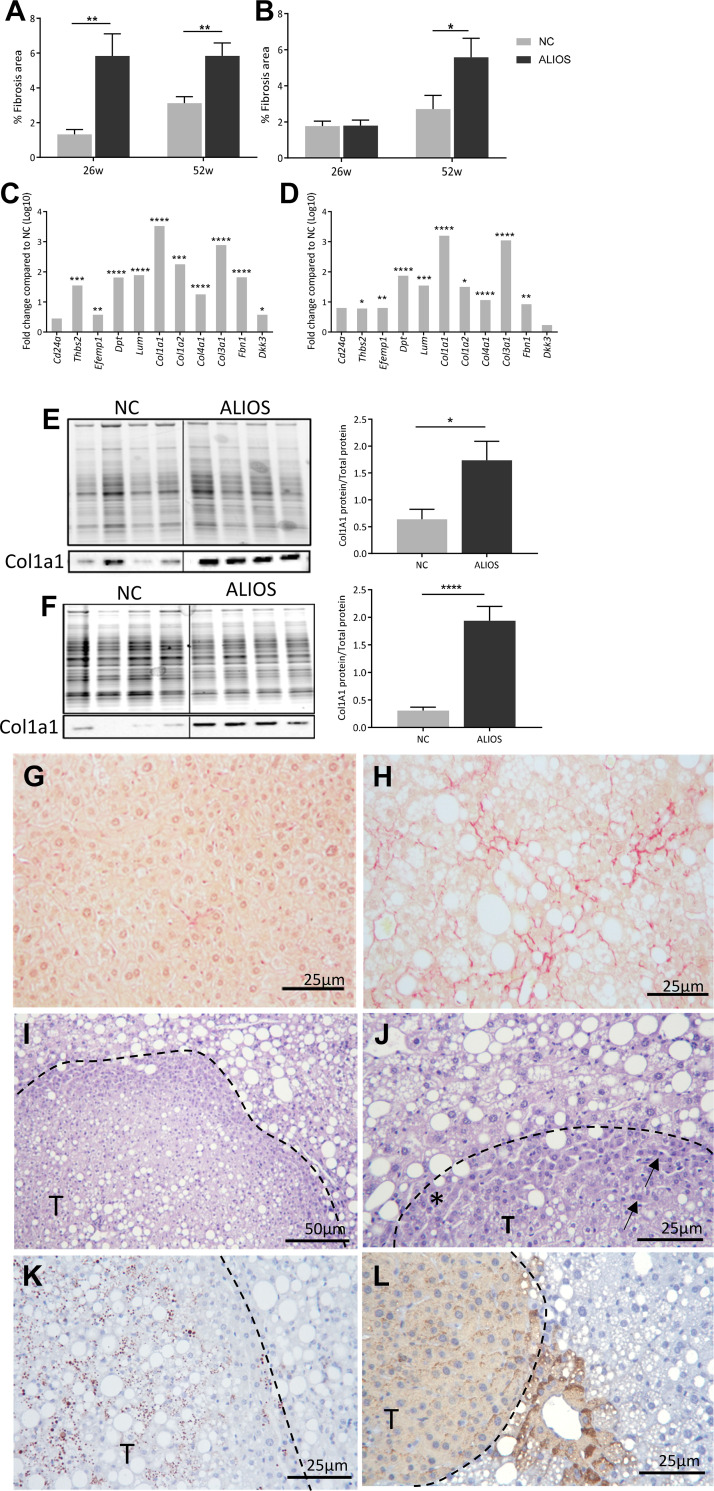Fig. 6.
American lifestyle-induced obesity syndrome (ALIOS) diet drives hepatic fibrosis in aged mice. Percentage fibrosis determined by Sirius Red staining in male (A) and female (B) normal chow (NC)- and ALIOS-fed mice at 26 wk (w; NC males, n = 12; ALIOS males, n = 15; NC females, n = 15; ALIOS females, n = 15) and 52 wk (NC males, n = 17; ALIOS males, n = 12; NC females, n = 15; ALIOS females, n = 15) and hepatic expression of genes associated with cell adhesion in male (C) and female (D) ALIOS-fed mice (n = 8 mice in each group; genes are expressed as fold changes in log10 compared with NC) are shown. Western blotting of Col1a1 in male (E) and female (F) NC- and ALIOS-fed mice at 52 wk (n = 10 mice in each group) was performed. Data are expressed as means ± SE; *P < 0.05, **P < 0.01, ***P < 0.001, ****P < 0.0001. Representative images depict Sirius Red staining in male NC (G) and ALIOS (H) mice at 52 wk. I: hematoxylin-eosin staining of a potential hepatocellular carcinoma (HCC) from a male ALIOS-fed mouse at 52 wk (T: tumor) highlighting (J) the compressed border of cells (asterisk) and multinucleic cells (arrow). An example is given of positive Sox9 (K) and glutamine synthetase (L) labeling in an HCC from an ALIOS-fed male mouse at 52 wk.

